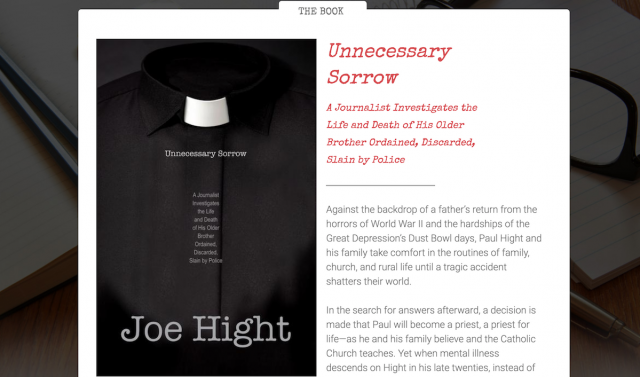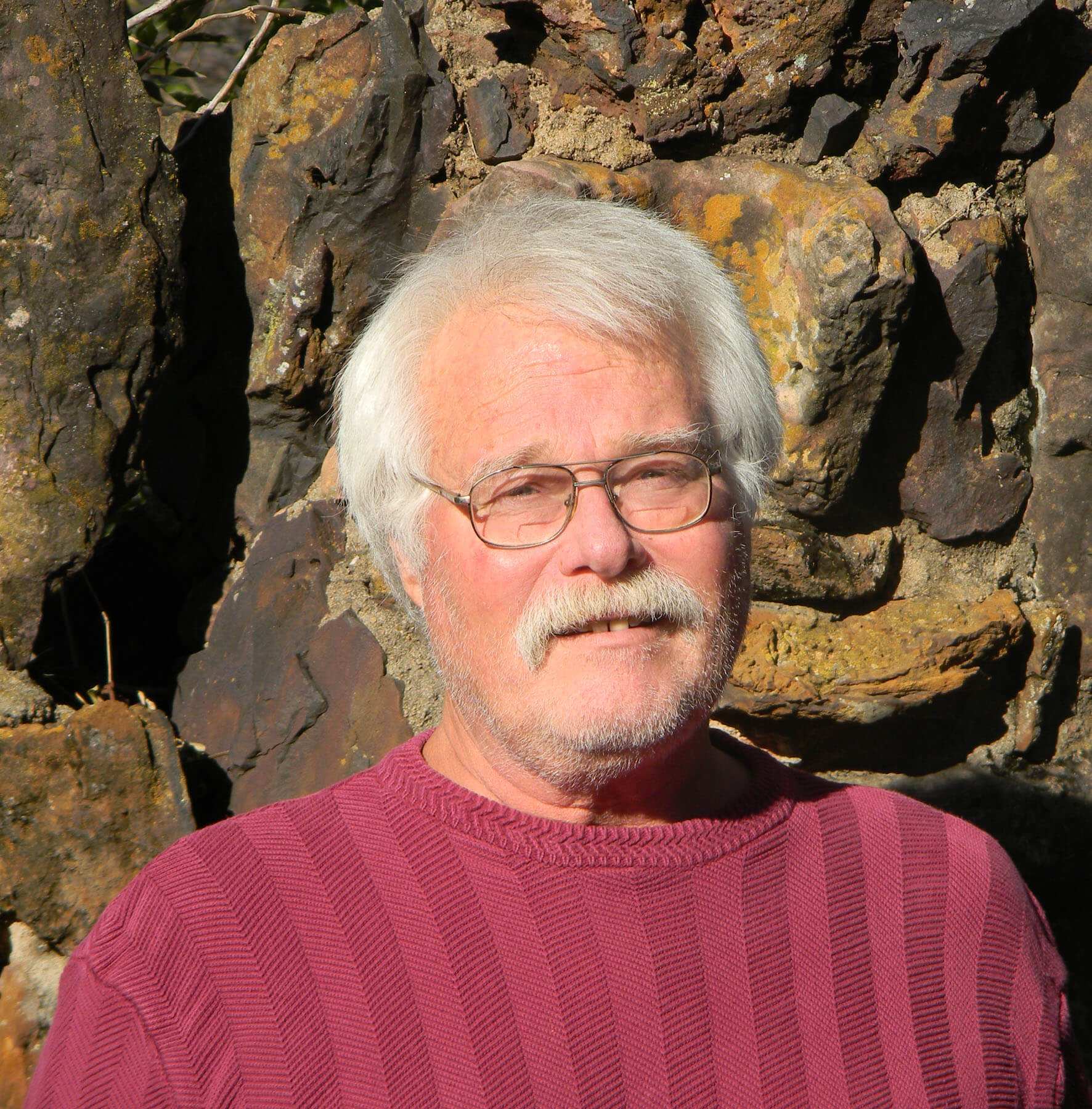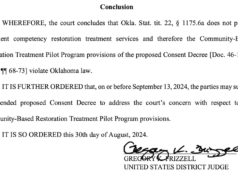

Joe Hight’s Unnecessary Sorrow: A Journalist Investigates the Life and Death of His Older Brother Ordained, Discarded, Slain by Police is timely and compelling. A journalism professor in the University of Central Oklahoma’s Mass Communications Department, Hight is Pulitzer Prize-winning journalist, who contributed to the series, Other Than Honorable about soldiers dealing with PTSD and traumatic brain injuries who were denied their benefits.
Unnecessary Sorrow is a powerful account of the fatal police shooting of Joe Hight’s brother, Paul Hight, a former Catholic priest who was diagnosed with paranoid schizophrenia. But the book is much, much more.
Paul Hight was born on the Oklahoma prairie in 1942 and was shot to death in 2000 by an Oklahoma City policeman. He was Joe’s hero. The notes Paul left behind are especially moving. For instance, he wrote, “I missed my true vocation which was to help people.”
Their parents, Wilber and Pauline, were devoted Catholics who lost a daughter to drowning. The father was a Marine combat veteran. As dad and mom, they nurtured with “industriousness” and the “can-do way of those who had suffered and survived the Dust Bowl, the Great Depression, and World War II.”
Paul was an ideal candidate for the priesthood during the progressive 1960s Vatican II movement. He joined a number of Oklahoma priests who questioned dogma on contraception, civil rights and social justice. Paul “developed an easygoing homily style,” played his guitar at services for the young and elderly, and was extremely generous in giving his own money to the poor.
From the priest’s collar to a blue collar
Unnecessary Sorrow first recalls the individuals and Catholic institutions which supported Paul when he developed mental illness. But it also recounts the ways where the church fell short of its duty. He was “laitized” or removed from the priesthood in 1975. Paul returned to Guthrie, “not as a seminarian or the perfect priest,” working a blue-collar job for the Department of Transportation.
The treatment for Paul’s schizophrenia was illustrative of our flawed approach to mental illness. The system’s inability to ensure timely and regular medication refills for outpatients like Paul was a serious problem. One inadequate response was giving monthly injections, without the oral treatments that should have supplemented them.
Paul was repeatedly sent to Central State Griffin Memorial Hospital, Norman; Eastern State Hospital, Vinita; and other institutions. At times, he lived in “conditions more akin to those depicted in the 1975 Film One Flew Over the Cuckoo’s Nest.” According to Hight, a common saying was, “If you are not crazy when you enter Griffin, you’re crazy when you come out.”
Paul Hight’s experiences inside Oklahoma mental institutions occurred around the time when deinstitutionalization was deemed a failure. The population of the “Norman insane asylum” peaked in the 1950s at around 3,600, and declined to about 300 in the 1970s. Patients were supposed to receive support at community centers. But those services were undermined by Reagan era policies, increasing homelessness and creating what the New York Times called, “a cruel embarrassment, a reform gone terribly wrong.”
Paul mostly lived with his parents or in apartments where he needed help to keep from falling off his medication. Paul’s good times were undermined by the death of his mother, the murder of a possible fiancé and being robbed at gunpoint.
In foreshadowing of the book’s awful climax, Joe speaks authoritatively to Paul when cleaning a greenhouse. Paul responds by brandishing a knife. Although he didn’t really seem to intend to use the weapon, the incident previewed the way untrained persons can escalate confrontations when confronting the mentally ill with a commanding voice. As would be learned, the methods that untrained police use with the mentally ill can be a recipe for disaster.
Shot twice by police
In 1996, Paul displayed “scraggly long hair,” “unkept garments” and a pocketknife while acting in a threatening manner at a Guthrie gas station. The policeman who intervened was justifiably frightened by his behavior, but the knife had already been tucked away. Had the officer been trained properly, Joe Hight argues, he could have backed off and used an appropriate voice for defusing the situation. Instead, he shot Paul. Joe investigated, learned why deadly force likely wasn’t necessary, and he negotiated a deal where Paul was not prosecuted in return for leaving Guthrie permanently.
Paul then found housing at the Park Manor Apartments, near Northwest 63rd Street and May Avenue in Oklahoma City. At times, friends and Paul’s generosity and warmth made for a better life. He often “thrived” in his new neighborhood. But when a cold front caused more medication disruptions in December 2000, Paul had not received a monthly Haldol shot since Oct. 31.
Witnesses were surprised when Paul pounded on their door. A knife was seen and the police called. Paul was shot to death by the police 36 inches outside his apartment. He was the 11th of 12 persons shot by Oklahoma City police that year. Five shootings were fatal.
District Attorney Bob Macy claimed Paul came at the officers at a “rapid pace,” with the “knife swinging in a life-threatening manner.” Witnesses contradicted the DA’s account about both the weapon and the officers’ opportunity to retreat and not use deadly force.
The official investigation appeared designed to clear the officers. An investigator hired by Hight found that no knife was shown in photographs of the scene, just in the lab. According to the investigator, the best evidence implied that, “a young and inexperienced Oklahoma City police officer panicked when he shot Paul Hight as he came out the door.”
Joe and a delegation of experts later met with Police Chief M.T. Berry, advocating for better use of the Mobile Crisis Intervention Teams. He also helped found the Dart Center for Journalism and Trauma at Columbia University.
And that leads back to the promising Vatican II era, which was embraced by Paul and other ecumenically-minded Oklahoma Catholic leaders. Similarly, secular and religious advocates now seek to reverse the brutalities that come from neglecting the mentally ill, the militarization of police and over-incarceration.
Unnecessary Sorrow offers lessons of history, hard facts and a vision of what it takes to help the most vulnerable among us. It is quite relevant in the year 2020.





















